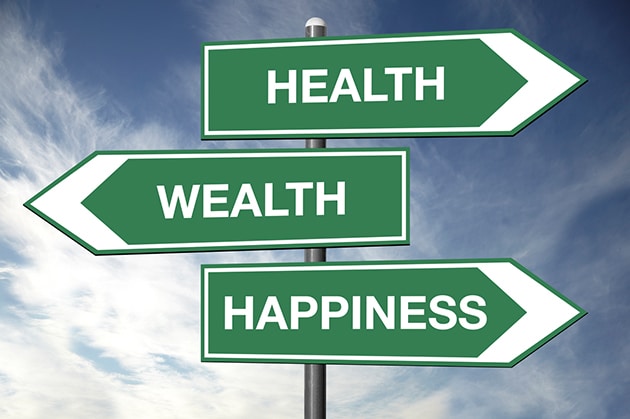Life expectancy is going up, up, up. And you need both your health and your money working in your favor to make sure all your years are vital and enjoyable. Why? Because one no longer works without the other. If you’re healthy but don’t have enough money, it’s tough to stay that way. And if you’ve got financial resources, but poor health, the latter will be a drain on the former.
That’s the premise behind my new book, Age Proof: Living Longer Without Running Out Of Money Or Breaking A Hip.
I wrote it with Dr. Michael Roizen, Chief Wellness Officer at the Cleveland Clinic. We found a number of different strategies that you can use to improve both your health and your financial life. Among them:
Automate: Human beings are still wired much like our lizard-brained ancestors. That makes us impulsive and, well, fairly lousy at making the right decisions when it comes to both our health and our finances. Automating our lives in these areas (at least as much as possible) improves our odds of doing the right thing. That’s why automatically stashing money in a 401(k) retirement plan or other savings account has shown to be such a successful strategy. But the same principle can be applied to food. Pick two or three breakfasts and lunches that are healthy and always at the ready. Reach for them automatically. Then you only have to focus on being creative about dinner each day.
Save enough: You should be aiming to save enough to maintain your current lifestyle in retirement — when you don’t have a regular paycheck. How? Work your way there over the years. By age 30, you should have amassed 1x your current salary. By 40, 3x. By 50, 6x. By 60, 8x and by the time you retire 10x. If you’re not there yet, sit down, take a deep breath and set yourself up to auto-save 15 percent of each paycheck.
Make lifestyle changes: If you need to cut costs to get there, consider making some lifestyle changes. Let’s say you give up a pack of cigarettes a day starting at age 35. Not only are you giving your health a substantial boost, but if you take those savings and invest them for the future, because of compounding interest you’ll likely have $360,000 more at age 65 according to analysis by AgeWave. Or think about moving. AgeWave chronicled a 65-year-old couple who, before retirement, sold their $325,000 New Jersey home and moved to South Carolina, where they bought a $115,000 home for cash. If you take property tax and cost of living savings into account, that adds up to savings of $28,000 a year.
Negotiate to lower healthcare costs: When it comes to spending on healthcare, those costs too are going up, up, up. But not all of them have to be. Before you have a major procedure, do your homework — use HealthcareBlueBook.com as a resource — to gauge what the cost for that procedure should be. Armed with this information, you can call your own doctor or hospital and negotiate costs. Try saying: “I’d like to go with you for this service, but my insurance only pays X — I see the same service is offered at X price at X location. Would you be willing to work with me on this?” Chances are they will, especially if you’ve got specific examples with you from the site
Oh, and about that hip: There’s a reason breaking a hip strikes fear into so many. That incident causes an increased risk of death, and being bedridden afterward can trigger a chain of less-than-ideal events like infections, arteries that are more prone to injury and a more vulnerable immune system. One way to avoid it? Adding jumping in to your exercise routine — try 20 jumps on a hard surface twice a day. As for your diet, add 1,500 milligrams of calcium and leafy greens in foods and supplements.






